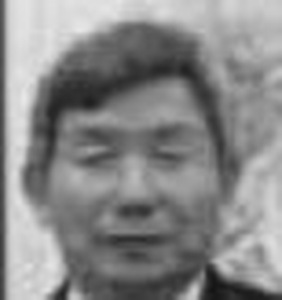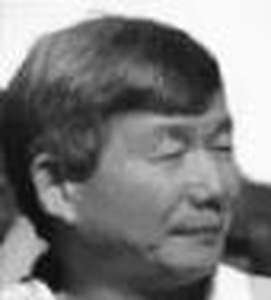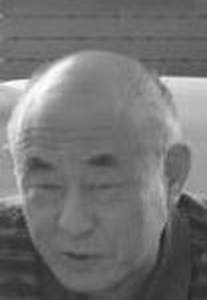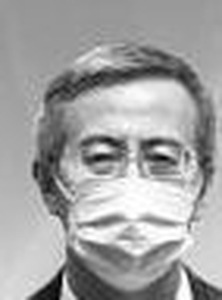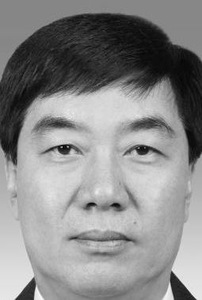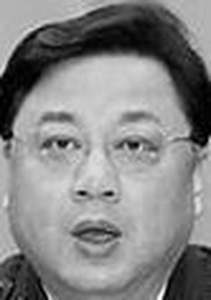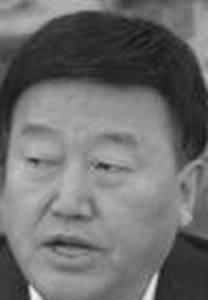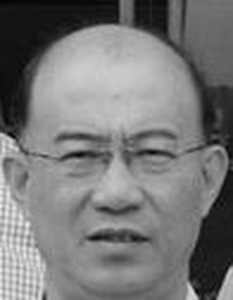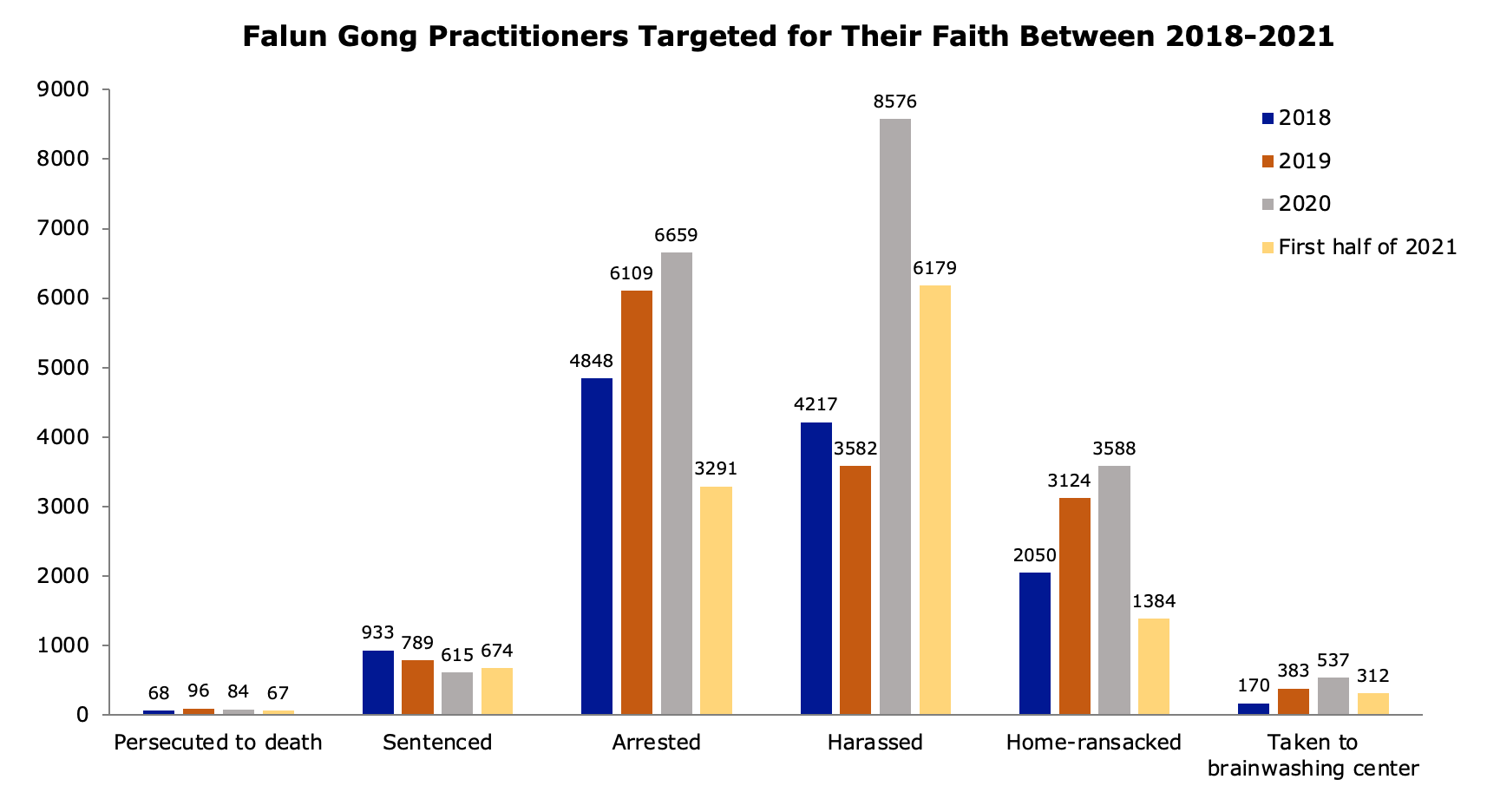(Minghui.org) Starting from July 14, 2021, Falun Gong practitioners in more than 30 countries are submitting the latest list of perpetrators involved in the persecution of Falun Gong to their respective governments, demanding sanctions on these human rights abusers, including denying entry into their countries and freezing their assets overseas.
Officials who worked or are working for the Ministry of Public Security Bureau’s “Office for the Prevention and Handling of Cult Crimes” (“Cult Handling Office” hereafter) are on the list this time.
Falun Gong teaches people to follow the principles of Truthfulness, Compassion, Forbearance to be good people, and the Chinese Communist Party is the real cult.
The “Cult Handling Office,” formerly the 26th Bureau of the Ministry of Public Security, has been renamed the 4th Bureau in April 2019. It reports directly to the “610 Office,” an extralegal agency created on June 10, 1999 specifically to persecute Falun Gong.
Around the end of 2000, Jiang Zemin, the former head of the Chinese Communist Party (CCP) who ordered the persecution of Falun Gong in July 1999, expressed his dissatisfaction at the 610 Office’s effectiveness in executing the persecution. He ordered the Public Security Bureau and local police stations in all cities to establish their own branches of the 610 Office. After that, 610 Office branches emerged across the country. Many police chiefs also became the head of the local 610 Office.
With increasing international scrutiny, the CCP disbanded the 610 Office leadership on March 21, 2018 and integrated that into China’s Ministry of Public Security and Political and Legal Affairs Committee (PLAC). The integration also applied to 610 Offices at provincial, municipal, and county levels and their functions were also transferred to the local PLAC and public security departments at the same level.
The “Cult Handling Office” has taken over the duty of the Central 610 Office in carrying out the persecution of Falun Gong. They are also given the authority to manipulate and mobilize the functions of public security and judiciary branches.
Since the establishment of the “Cult Handling Office,” Zhang Yue, the deputy director of the Beijing Municipal Public Security Bureau, was appointed as the first director in November 2003 and served the term until December 2007, before he was appointed as the Secretary of the Party Committee of the Public Security Department of Hebei Province.
After Zhang left office, no new director was appointed. The director of the “Cult Handling Office” was concurrently served by the director of National Security Bureau, also known as the First Bureau of the Ministry of Public Security. They were Li Jiangzhou (2011 to June 2012), Bai Shaokang (June 2012 to March 28, 2012) and Sun Lijun (March 28, 2013 to 2019).
In 2019, after the “Cult Handling Office” was reassigned as the 4th Bureau of Ministry of Public Security, the authorities began to name new directors to it, instead of having a co-director from the National Security Bureau, the First Bureau of Ministry of Public Security.
Part 1. List of Current and Former Persons in Charge of the “Cult Handling Office”
1. Sang Linyu (桑麟榆), male, currently serves as secretary and director of “Cult Handling Office.” According to media reports, he assumed this position in 2019. Previously he has served as deputy director of the National Security Bureau of the Ministry of Public Security since 2012.
Sang’s other position is secretary general of the China Association for Friendship, an organization of the Ministry of Public Security under the disguise of a civil organization.
2. Li Xiaodong (李晓东), male, is currently the political commissar of the “Cult Handling Office.” According to media reports, he has held this position at least since 2019. He previously served as a director of the office when it was still the 26th Bureau of Ministry of Public Security until February 2018 and was once the head of the 10th division of National Security Bureau in 2006.
3. Song Quanzhong (宋全中), is the current deputy director of the “Cult Handling Office.” According to media reports, he has been in his current position at least since 2019, and previously served as deputy inspector of the National Security Bureau.
4. Wang Dezhou (王德洲), male, graduated from Southwest University of Political Science and Law. He is the former director of the First Bureau of the Central 610 Office and currently the deputy director of the “Cult Handling Office.”
5. Yang Xin (杨新) is currently the deputy director of the “Cult Handling Office.” According to media reports, he has served as the deputy director of the National Security Bureau since 2019.
6. Li Junke (李军科), according to media reports, has served as deputy inspector of the “Cult Handling Office” since 2020.
7. Bai Shaokang (白少康), male, born in May 1962, is from Xi'an, Shaanxi Province. Between September 2011 and March 2013, he served as a director of National Security Bureau; between March 2018 to present, he serves as a member of the Standing Committee of the Central Commission for Discipline Inspection, a member of the State Supervision Commission, the deputy secretary general of the Central Political and Legal Affairs Committee. He also serves as the head of the social stability maintenance team in the Safe China Construction Coordination Group.
8. Sun Lijun (孙力军), male, born in January 1969, is from Qingdao, Shandong Province. He served as the director of the 26th Bureau of the First Bureau from March 28, 2013 to February 2019. He was promoted to the deputy minister of Public Security in March 2018. He was the deputy director of the 610 Office of the Central Committee.
9. Yin Zhitian (殷治田) served as the executive deputy director of the Public Security Department of the Tibet Autonomous Region in 2003. In 2006, he served as the secretary of the Party Committee of the Appraisal Center of the Ministry of Public Security. From 2012 to early 2019, he served as the political commissar of the 26th Bureau of the First Bureau of the Ministry of Public Security. He is currently the political commissar of the First Bureau.
10. Liang Yun (梁云), male, served as the deputy director of the First Bureau of the Ministry of Public Security and the deputy director of the 26th Bureau of the Ministry of Public Security between 2008 and November 27, 2016. He served as the executive deputy director of the National Narcotics Control Office and the director of the Narcotics Bureau of the Ministry of Public Security between December 2016 until now.
Part 2. Major Crimes Committed by Members of the “Cult Handling Office”
Sang Linyu, Li Xiaodong, Song Quanzhong, Wang Dezhou, and Yang Xin are the current leaders of the 4th Bureau of the Ministry of Public Security. They have previously served in the National Security Bureau and the Anti-Cult Bureau of the Ministry of Public Security. They are accomplices and promoters of the CCP’s persecution of Falun Gong. The director, the political commissar, and the deputy director who served in 2019, continued to implement the CCP’s genocide policy of the practitioners throughout the country.
In November 2019, Sang Linyu slandered Falun Gong at a meeting of Party Committee Theoretical Learning Center Group of the National Public Security, demanding his comrades to “continue executing the anti-cult work by public security... Severely crack down on all cult organizations...”
Zhao Kezhi, the Minister of Public Security, on the other hand, called for a “severe crackdown on Falun Gong” in his report on the standardization of law enforcement by public security organs.
Together with the central PLAC, the “Cult Handling Office” launched the “Zero-out” campaign in 2020, aiming to force every Falun Gong practitioner on the government’s blacklist to renounce their faith. The local police and residential committee staff members across the country forced practitioners to write statements to give up their belief. If they refused, the practitioners were taken to brainwashing classes, detention centers or sentenced to prison. Some practitioners had their pensions suspended. Some of their families were also implicated and forced to sign renouncing statements on behalf of the practitioners.
Many provinces and cities in China launched special campaigns to suppress Falun Gong practitioners’ truth-clarification. They set up rewards and bonuses to encourage the public to report the practitioners. The bonuses were as high as 100,000 yuan in Guangdong and Hainan provinces.
Persecution of Falun Gong Between 2019 and 2021
1. Persecution in 2019
The year 2019 had several anniversaries deemed sensitive by the regime: April 25 marked the 20th anniversary of the peaceful appeal of 10,000 practitioners outside of the National Appeals Office in Beijing seeking the release of several dozen practitioners unjustly arrested in nearby Tianjin days before; July 20 marked the 20th anniversary of the onset of the persecution of Falun Gong; October 1 marked the 70th anniversary of the Chinese Communist regime’s founding.
The arrests and harassment of Falun Gong practitioners spiked around these three anniversaries, as the authorities attempted to prevent the practitioners from engaging in public demonstrations or launching other grassroots efforts to raise awareness about the persecution.
In Siping City, Jilin Province, the authorities rewarded the police officers with ten points when arresting one Falun Gong practitioner, but only one point when they arrested a real criminal.
It has been recorded that 6,109 Falun Gong practitioners were arrested and 3,582 harassed in 2019. Among them, 383 practitioners were taken to brainwashing centers and 3,124 had their homes ransacked. Another 789 practitioners were sentenced to prison.
Many families had several members arrested at the same time in 2019. In particular, ten members of a family in Bozhou City, Anhui Province, including a mother, her five daughters, three sons-in-law and a 12-year-old grandson, were arrested on April 17, 2019 by more than 100 officers. Four of the daughters stood trial on December 5, 2019 and were later sentenced to 4.5 to 7.5 years.
In Nanyang City, Henan Province, over 130 practitioners were arrested at around 5 a.m. on August 30, 2019. Sixty of them were taken to the local brainwashing center.
Of note, 9.7% (593) of the practitioners arrested and 5.9% (213) of the practitioners harassed are 65 or older, while 112 arrested practitioners and 92 harassed practitioners are 80 or older.
Ms. Wang Shaoqing, 74, of Hubei Province and 12 other practitioners, including Ms. Zhou Xiuwu (aged 79) were arrested on March 7, 2019 for talking to others about Falun Gong in a park.
Mr. Luan Ning, former Deputy Director of Education Center of Ningxia Province Labor and Personnel Department, was sentenced to 10 years in prison and fined 100,000 yuan. He was convicted of “subverting state power” by mailing letters about the persecution of Falun Gong.
Ninety-six practitioners passed away as a result of the persecution. Nineteen of them died while being held in custody. Most others died after enduring long term incarceration, torture and harassment. These practitioners came from all walks of life, including government employees, scientists, school principals, teachers, retried military officers, doctors, and factory managers.
Ms. Guo Zhenxiang, an 82-year-old resident of Zhaoyuan City, Shandong Province, died hours after she was arrested at a bus station for talking to people about Falun Gong on January 11, 2019.
Mr. Yang Shengjun, of Jiamusi City, Heilongjiang Province, passed away nine days after his arrest on August 2, 2019. He vomited blood while in the detention center and his family was forced to pay 30,000 yuan for his medical expenses.
Mr. He Lifang, of Qingdao City, Shandong Province, was arrested in May and died in custody on July 2, 2019. He was 45. His family saw a sewn-up incision on his chest and an open incision on his back. The police first said the incisions were a result of an autopsy, but his family suspected his organs had been harvested either while he was alive or shortly after his death.
Ms. Bai Chunhua, of Gongyi City, Henan Province, died less than six days after she was arrested in December 2019. Her family said she had bone fractures in her third, fourth and fifth ribs on the left, and second and fifth ribs on the right. She also had injuries on her lips and there were multiple bruises around her back. They suspect that she had been beaten to death for not giving in to the police’s demand to renounce her faith. She was 63.
2. Persecution in 2020
Entering 2020, while China was hit hard by the coronavirus pandemic, the communist regime continued its persecution of Falun Gong.
In 2020, at least 615 practitioners were sentenced, 6,659 were arrested and 8,576 were harassed. A total of 3,588 practitioners had their homes ransacked and another 537 were taken to brainwashing centers. The targeted practitioners came from 304 cities in 29 provinces and municipalities. Among those arrested and harassed, 1,188 were 65 or older, with 17 practitioners in their 90s and the oldest being 94.
A total of 7,284,097 yuan was extorted or confiscated from 401 practitioners during their arrests, averaging 18,165 yuan per person.
In Dalian City, Liaoning Province, at least 30 practitioners and their family members, including a practitioner in her 90s, were arrested between July 10 and 11, 2020. Among them, seven were later sentenced to 1 to 9 years.
The year of 2020 recorded 84 practitioners who died in the persecution, including 21 who passed away in custody.
Ms. Zhang Zhiwen of Yuzhou City, Henan Province, was arrested at home on May 13, 2020, and died four days later in police custody. The police gave no explanation for her death and had her body cremated quickly afterward.
Ms. Li Ling of Penglai City, Shandong Province, was seized by a village official and paramilitary soldiers on June 28, 2020, after being reported for possessing Falun Gong literature. She was taken to an empty house in a mountainous area and viciously beaten and tortured. She died of her injuries on July 13.
Dr. Wang Shukun, a 66-year-old physician of internal medicine at Hailin Town Hospital in Haining City, Heilongjiang Province, was beaten by the police in late June 2020 for refusing to sign a statement and state that her husband practices Falun Gong (when he doesn’t). She suffered sharp pain in her leg and had to crawl up the stairs to get back to her apartment. She had bruises over her body. Her kneecaps were broken, and she was soaked in sweat. She suffered a cerebral hemorrhage on July 1 and passed away on the next day.
3. Persecution in 2021
The first half of 2021 recorded 3,291 Falun Gong practitioners from 264 cities in 30 provinces being arrested and 6,179 harassed for their faith. A total of 118 of the practitioners had their blood samples collected and 3 had their DNA taken against their will.
Among the 9,470 targeted practitioners, 1,384 had their homes ransacked. One hundred and fifty-two practitioners had a total of 1,942,553 yuan and 20,000 USD in cash confiscated, averaging 142,292 yuan per person. Another 78 have been forced to live away from home to avoid further persecution and possible arrest.
A total of 674 practitioners were sentenced to prison in the first half of 2021. Except for 30 practitioners whose terms are unknown, 33 who were given probation and didn’t have to serve time and two who were only fined but not given prison terms, the other 602 (90%) practitioners were sentenced to prison with terms ranging from four months to 14 years, with an average of three and a half years.
Mr. Shi Shaoping, a 50-year-old Beijing resident, was sentenced to nine years. Ms. Wang Jianmin, a doctor of Laiyang City, Shandong Province, was given nine years. Mr. Li Dengchen, an 82-year-old retired teacher in Shenzhou City, Hebei Province, was sentenced to 10 years in January 2021.
The deaths of 67 Falun Gong practitioners were confirmed in the first half of 2021, with 13 of them deceased in custody.
While in a detention center awaiting the results of her appeal against an 11.5-year prison sentence, Ms. Mao Kun, an accountant in Chengdu City, Sichuan Province, was taken to a hospital emergency room around April 9, 2021. Her family was asked to apply for medical parole on her behalf. But before they even got a chance to submit the application, Ms. Mao passed away in the hospital on the evening of April 11. She was 57.
Mr. Gong Piqi, a retired colonel in Qingdao City, Shandong Province, died in the prison on April 12, 2021. The doctor and prison authorities initially refused to let his family see his body. When the family protested, Mr. Gong’s older brother and nephew were finally allowed to see his body, but not allowed to take photos or videos. Mr. Gong’s head was injured and swollen and there was blood in his ears, according to his brother.
Mr. Yuan Guangwu, a 54-year-old Liquan County, Shaanxi Province resident, lost his mother Ms. Li Caie and wife Ms. Zhang Cuicui within less than three months due to the persecution. His younger brother Mr. Yuan Huiwu was sentenced to three years in prison. Mr. Yuan Guangwu himself is being forced to live away from home to avoid being persecuted for practicing Falun Gong.
All articles, graphics, and content published on Minghui.org are copyrighted. Non-commercial reproduction is allowed but requires attribution with the article title and a link to the original article.


